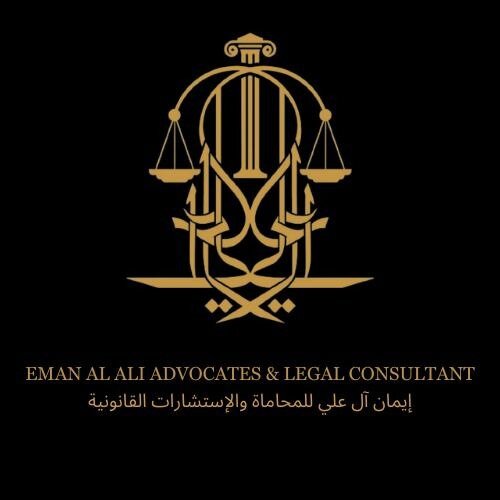Best International Trade Law Lawyers in United Arab Emirates
Share your needs with us, get contacted by law firms.
Free. Takes 2 min.
Or refine your search by selecting a city:
List of the best lawyers in United Arab Emirates

About International Trade Law in United Arab Emirates
International Trade Law in the United Arab Emirates (UAE) is an integral part of the country’s legal system, given its strategic location as a global trade hub. The UAE comprises seven emirates and is known for its open economy, with trade being a significant contributor to its GDP. The legal framework governing international trade is designed to facilitate cross-border transactions while ensuring compliance with international norms and standards. The UAE adheres to various multilateral trade agreements and has a robust regulatory environment to support trade activities efficiently and transparently.
Why You May Need a Lawyer
Engaging in international trade activities in the UAE can present numerous challenges and complexities that may necessitate legal guidance. Common situations where an international trade lawyer's expertise may be needed include:
- Compliance with international trade agreements and local regulations.
- Resolving cross-border commercial disputes.
- Navigating import/export licensing and permits.
- Assisting with international trade financing and letters of credit.
- Handling customs and tariffs issues.
- Advising on trade sanctions and embargo-related matters.
Local Laws Overview
The UAE has specific local laws and regulations relevant to international trade that stakeholders must adhere to. Key aspects include:
- Customs Regulations: Managed by the Federal Customs Authority, regulations cover tariff classification, import/export controls, and customs valuation.
- Free Trade Zones: Numerous free zones offer incentives for businesses engaging in trade, including tax exemptions and foreign ownership rights.
- Tax Environment: The UAE offers a favorable tax climate with no personal income tax and a VAT rate of 5% on most goods and services.
- Trade Agreements: The UAE is a signatory to various bilateral and multilateral trade agreements that help reduce trade barriers.
- Commercial Agencies Law: Governs the establishment of agency relationships between foreign principals and local UAE agents.
Frequently Asked Questions
What role does the UAE play in international trade?
The UAE is a vital global trade hub due to its strategic geographic location, excellent infrastructure, and business-friendly policies, facilitating trade between East and West.
What are free zones in the UAE?
Free zones are special economic zones offering business incentives such as tax exemptions, 100% foreign ownership, and simplified customs procedures to attract foreign investors.
Is there a standard taxation policy for companies involved in international trade?
While UAE imposes no corporate tax for most sectors, exceptions include the oil and banking industries. However, a VAT of 5% is applied to most goods and services.
What are the required documents for importing goods into the UAE?
Required documents typically include a commercial invoice, certificate of origin, packing list, bill of lading, and any specific licenses related to the goods.
How can a lawyer assist with customs and tariff issues?
Lawyers can provide advice on classification, valuation, and navigating customs procedures to ensure compliance and cost efficiency in import/export activities.
What is the impact of international trade agreements on businesses in the UAE?
Trade agreements facilitate easier market access, reduce tariffs, and create a more predictable business environment for UAE-based companies engaged in international trade.
Are there penalties for non-compliance with trade regulations?
Yes, non-compliance can result in fines, restrictions on trade activities, and reputational damage. Ensuring adherence to all applicable laws is essential for businesses.
How do international trade disputes get resolved in the UAE?
Disputes may be resolved through negotiation, arbitration, or litigation, with many businesses opting for arbitration due to its confidentiality and efficiency.
What is required to establish a commercial agency in the UAE?
Foreign companies must register the commercial agency agreement with the UAE Ministry of Economy to legally appoint a UAE national or company as their representative.
What support does the UAE government provide to businesses in international trade?
The UAE government offers various forms of support, including financing, trade promotion services, and access to a network of trade and investment offices globally.
Additional Resources
For more information and assistance, consider reaching out to the following organizations:
- Federal Customs Authority: Offers guidance on customs regulations and procedures.
- Ministry of Economy: Provides resources related to trade regulations and commercial agency regulations.
- Dubai Chamber of Commerce: Offers support and information for businesses involved in trade activities.
- Ras Al Khaimah Economic Zone (RAKEZ): Serves as a resource for understanding free zone benefits.
Next Steps
If you need legal assistance with international trade law in the UAE, consider the following steps:
- Identify your specific legal needs and challenges related to international trade.
- Research and consult with law firms specializing in international trade law in the UAE.
- Prepare all necessary documentation and information to facilitate your legal consultation.
- Engage a lawyer to help you navigate legal complexities, ensuring compliance with all relevant laws and regulations.
Lawzana helps you find the best lawyers and law firms in United Arab Emirates through a curated and pre-screened list of qualified legal professionals. Our platform offers rankings and detailed profiles of attorneys and law firms, allowing you to compare based on practice areas, including International Trade Law, experience, and client feedback.
Each profile includes a description of the firm's areas of practice, client reviews, team members and partners, year of establishment, spoken languages, office locations, contact information, social media presence, and any published articles or resources. Most firms on our platform speak English and are experienced in both local and international legal matters.
Get a quote from top-rated law firms in United Arab Emirates — quickly, securely, and without unnecessary hassle.
Disclaimer:
The information provided on this page is for general informational purposes only and does not constitute legal advice. While we strive to ensure the accuracy and relevance of the content, legal information may change over time, and interpretations of the law can vary. You should always consult with a qualified legal professional for advice specific to your situation.
We disclaim all liability for actions taken or not taken based on the content of this page. If you believe any information is incorrect or outdated, please contact us, and we will review and update it where appropriate.
Browse international trade law law firms by city in United Arab Emirates
Refine your search by selecting a city.















